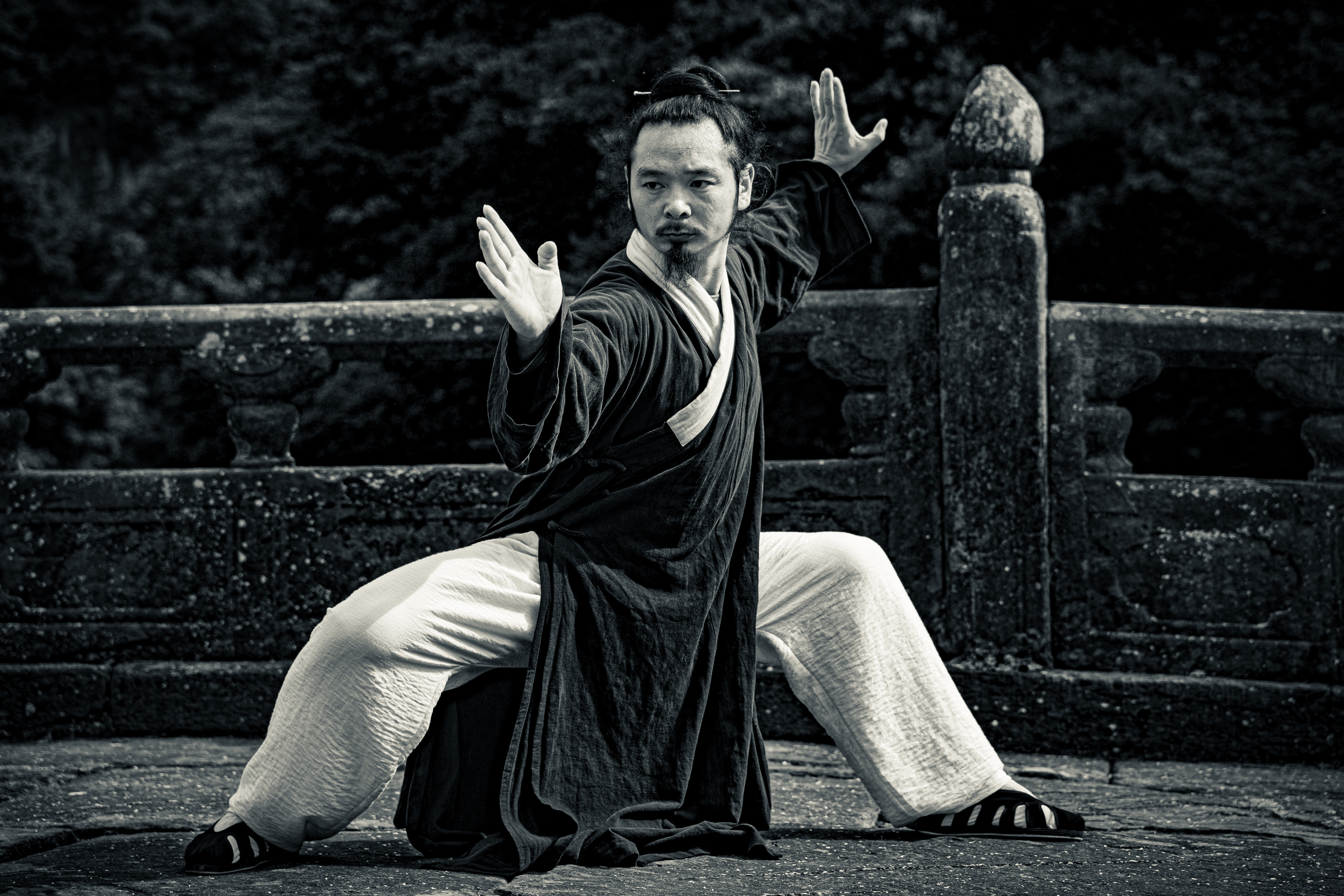Your cart is currently empty!
Tag: Academy
-

Learning About Ancient Chinese History
We believe it is important to be on the same level of information as young Chinese people in order to truly understand their story. This presentation is a little above average Chinese folk knowledge of their history. This is by no means a complete Chinese history lesson, but we have picked out the things that…
-

Original Wudang Taijiquan Seminar
Taiji Quan (Taiji = the highest, ultimate primal principle, Quan = fist, fistfight) is a highly developed form of the internal martial art and is based on the application of Daoist principles. According to tradition, Taiji Quan was developed in the Wudang Mountains by Zhang Sanfeng, the legendary founder of Sanfeng Pai, and spread across…
-

Baguazhang – The Circle of Life
After Tai Ji Quan, Ba Gua Zhang is the most famous style of internal martial arts in China. Ba = 8, Gua = oracle sign, trigram, Zhang = palm, open hand; Ba Gua Zhang, therefore, means “martial art of the 8 trigrams”. As in Tai Ji Quan, inner energy is also generated and cultivated here…
-

The Modern-Day Taoist And The Hardships
The following content in this video is about a very important topic for every student in my school – also including my students who are committed to training online via our platform. First of all, we are trying to structure the difficulties of modern life. Laozi states that we should enjoy things and let them…
-

How Qi (Internal Energy) Works Within the Body
The body and mind are deeply connected. We need many things to work efficiently. Some theories are mostly very fragmented and do not explain the whole universe of these principles. If one portion of our primary needs is not satisfied, we lack energy or cannot use it efficiently. The Daoist understanding is to reflect on…
-

How Zhan Zhuang Improves Your Taiji
As recently discussed in this post, Zhan Zhuang is an important pillar in internal martial arts. But what skills does Zhan Zhuang actually bring to Taiji practitioners? We want to go into that today. Feel and recognize Yin and Yang Through the continuous practice of Zhan Zhuang, we become aware of areas of tension. Like…
-

The Immortal Powers of Zhan Zhuang
Master Yuan Xiu Gang leading a Zhan Zhuang class: What is Zhan Zhuang? Zhan Zhuang is one of the most important pillars in the inner martial art of Wudang. This exercise is a relaxed standing with open arms and shoulders. In Wudang, it is one of the Qi Gong exercises that everyone should do every…
-

Important: What You Should Know In A Traditional Martial Arts School
Who is who in Chinese Your direct master or the direct teacher of the school is addressed 師父 (Shī Fù). The grandmaster, the teacher of your teacher, is addressed 師爺 (Shī Yé ) The more senior (not by actual age, but by the time of the study) students of the school, the males are addressed…
-

What you always wanted to know about Tai Chi
In Wudang, Tai Chi is a very structured practice which is lead step by step to achieve accomplishments, yet when you ask the student why do you practice Tai Chi? What do you think is the reason? The reason why we practice Tai Chi Tai Chi was meant to learn about oneself, to learn self-cultivation.…
-

The Three Pillars of Internal Wudang Martial Arts
There are three main doctrines that help progress in the internal arts. We reach mastery when we train all three categories. The doctrines are structured and should prevent confusion in the Wudang martial arts or esoteric approaches which lead away from the main path.
-

The Invisible Mother – Dao De Jing Chapter 6
谷神不死 是謂玄牝 “The valley spirit does not die, it is called the invisible mother.” 玄牝之門 是謂天地根 “The gate of the invisible mother is the root of heaven and earth.” 綿綿若存 用之不勤 “Formless but appears to exist, use it and it never depletes.”
-

The Windbox – Dao De Jing Chapter 5
We held the interview completely in Chinese and then constructed a translation with our translator who is a native speaker and Coach in our academy and follower of the Daoist doctrines for many years.
